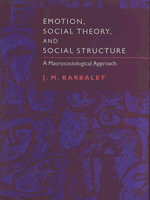7 - Fear and change
Published online by Cambridge University Press: 22 September 2009
Summary
Fear is an incapacitating emotion. But that it is necessarily so is questioned in this chapter. Indeed, the idea that fear leads to an actor's realization of where their interests lie, and points in the direction of what might be done to achieve them, is not forced or artificial. These are the aspects of fear emphasized in the discussion to follow.
The conventional view of fear, that it does inhibit action and prevents rather than directs change, is given expression in Darwin's classic characterization of it. Darwin's account of fear is examined in the following. Certain of its assumptions, and especially the claim that fear is a reaction to danger, are then considered. The difference between the cause of fear and its object is noted in order to specify that to which in general fear is a reaction. In this vein the substance of the concept of threat is clarified and the temporal object of fear indicated.
The nature of social fear is next discussed. This topic relates to not only what is feared, but also by whom. The formal constitution of groups is considered in order to develop the notion of an emotional climate, and especially a climate of fear. Fear is caused by an incapacity to deal with danger or threat. But it is not only powerless social actors who experience fear. Elites may fear that their privileged position is threatened when the system they dominate undergoes a relative shift in power relations.
- Type
- Chapter
- Information
- Emotion, Social Theory, and Social StructureA Macrosociological Approach, pp. 149 - 169Publisher: Cambridge University PressPrint publication year: 1998
- 1
- Cited by



